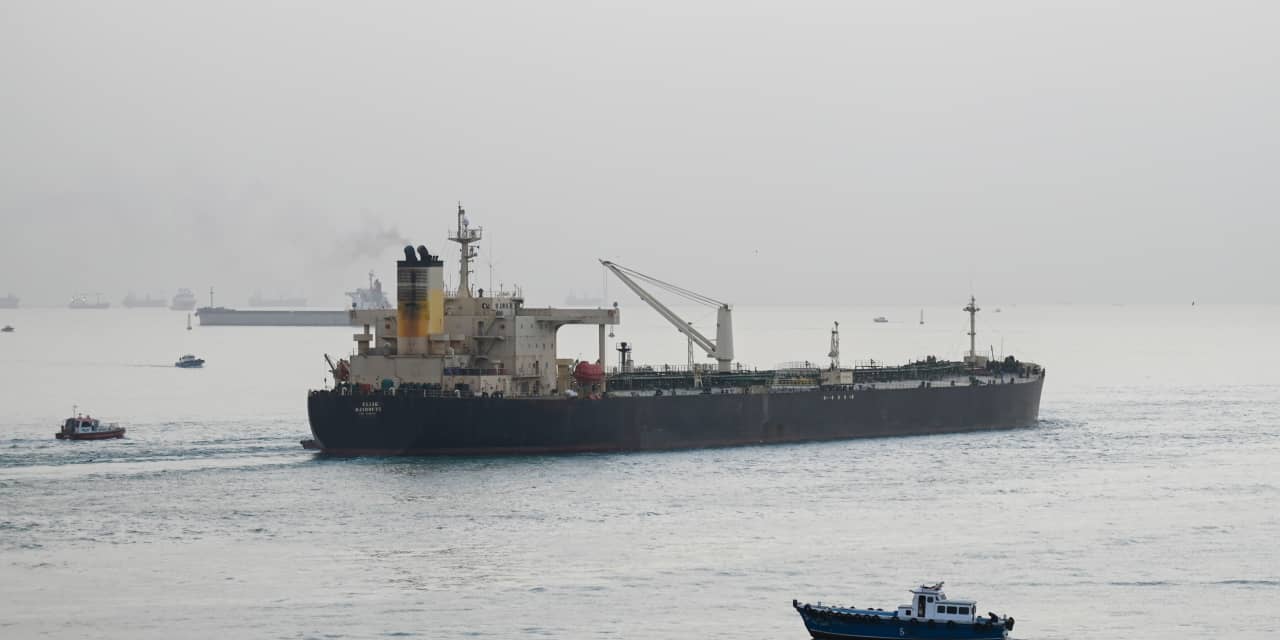Oil prices were up early Monday amid heightened fears of supply disruption as tensions increased in the Middle East.
A U.S. jet fighter shot down a cruise missile fired toward an American destroyer in the Red Sea by Houthi rebels in Yemen on Sunday, according to Associated Press citing officials.
Global ships using this key route have been the target of attacks amid the deepening conflict in Gaza after Hamas launched its October attack on Israel.
The Red Sea is a crucial shipping route that handles 12% of global trade, and 21% of containership traffic. Egypt’s Suez Canal is at its north end. Major shipping lines including
Maersk,
CMA CGM, and
Hapag-Lloyd
have been affected by the unrest, causing sharp reactions to their stocks.
Brent crude, the international benchmark, was up 1.2% at $77.34 a barrel Monday. It is up 0.4% so far this year. West Texas Intermediate, the U.S. standard, rose 1.3% to $71.73 a barrel. Its contracts are up 0.1% this year.
QatarEnergy, one of the world’s biggest liquefied natural gas exporters, is taking security advice on whether to continue to route its tankers via the Red Sea, according to a Monday report.
At least four of its tankers were disrupted over the weekend and the producer has now paused sending the vessels via that route, Reuters reported citing unnamed sources. If it decides to detour its tankers around the Cape of Africa instead, this would add nine days to the passage and hike costs.
Over the weekend, China called for a “comprehensive, authoritative and effective” international peace conference, according to China Daily, the official newspaper of the country’s Communist Party. It said this was needed to create a road map for a two-state solution to end the Israeli-Palestinian conflict.
Write to Rupert Steiner at rupert.steiner@barrons.com
Read the full article here













Leave a Reply